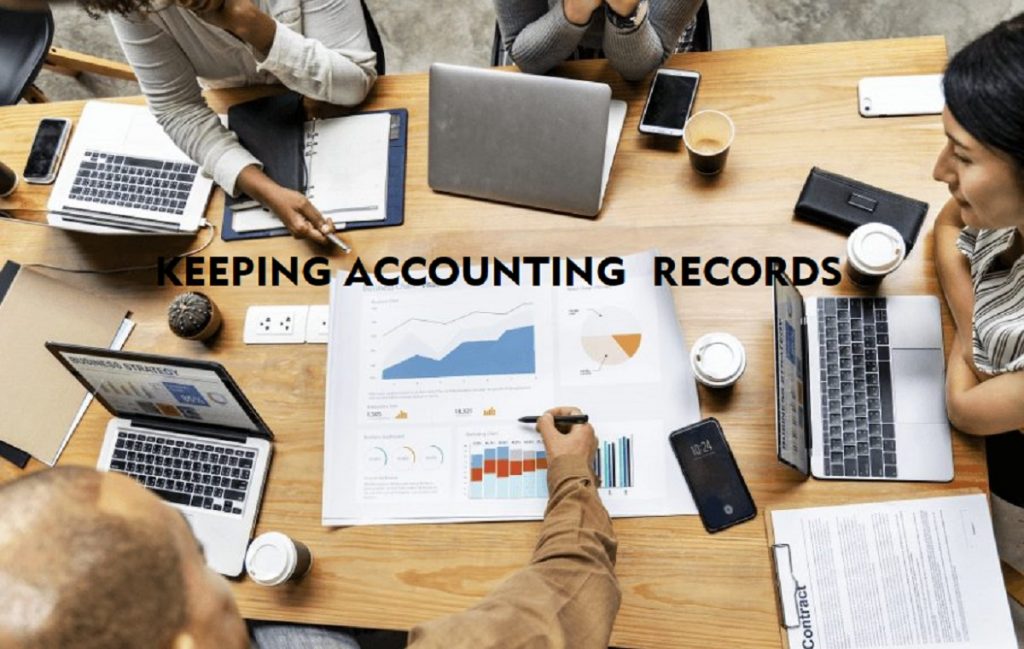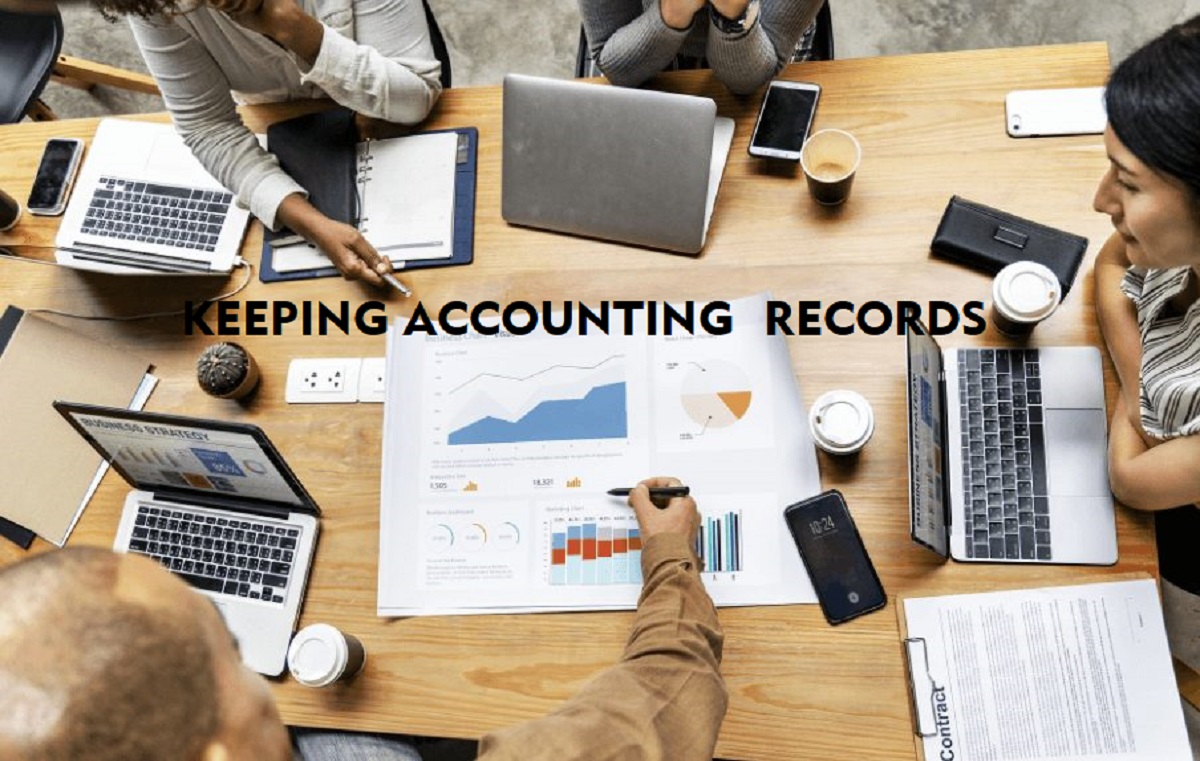Business Basic Accounting: All You Need to Know About It. The basic accounting process is one of the business functions that companies have to perform efficiently. Therefore whether you intend to do your own accounting or bookkeeping by yourself or hire professionals, there is still a need for you to become familiar with basic accounting principles.
As a matter of fact, as a businessman or woman, this post is very essential for you. In fact, for those of you who are young business people, this is essential for you. So, read more about Business Basic Accounting: All You Need to Know About It here.
Inadequate Accounting Knowledge of Fresh Businessmen:
Table of Contents
As a matter of fact, we are persuaded to put up this article in order to deal with certain inadequacies I have noticed in many fresh business people. Especially many of you who don’t have basic accounting training. Therefore in this article, we discuss what basic accounting is, what is included in it, and examples of basic accounting procedures. In doing these certain accounting key phrases are introduced and defined.
These include Assets, Liability, Equity, Turnover, and purchases. Then, added are certain accounting statements like balance sheet, Income state also known as Profit and loss account, Trial balance and cash flow analysis. To start with is what basic accounting is. So let’s read on.
What is basic accounting?
Basic accounting refers to the process of recording a business’s financial transactions. This involves keeping transaction records, analyzing, summarizing, and reporting these to certain individuals and organizations who make use of them. These include the business management team, your business regulators, oversight agencies, and tax collection functionaries. The fact is that all the period’s transactions are recorded as a management record.
These are done is such a manner that they are then presented as financial statements. This means that such statements used in basic accounting are a brief summary of financial transactions over an accounting period. This is the company’s business summary of cash flows, operations, and financial position. Still, follow us for more exposition on Business Basic Accounting: All You Need to Know About It.
Furthermore, basic accounting is one of the key functions in almost all types of businesses. This duty is usually performed by an accountant or a bookkeeper at a small company. However, in large organizations, these are done by designated large finance departments with dozens of employees. The challenge is that some businessmen and women can not afford a bookkeeper. So, by this post, we encourage them to learn how to keep some records for their business.
Importance of Accounting Records – Business Basic Accounting: All You Need to Know About It.
Basic accounting records for a business is very important. In fact, the reports that various streams of accounting generate, such as managerial accounting and cost accounting, are crucial in helping a company’s management make informed business decisions. On the other hand, small businesses that can not afford to hire a bookkeeper suffer a lot of managerial disorderliness. Still, read more about Business Basic Accounting: All You Need to Know About It.
As a matter of fact, without accounting, it would be impossible to determine which products were successful Or which business decisions were effective, and whether the company is generating revenue or making a profit. In addition, it would also be impossible to determine how much taxes to pay. And when it comes to making or buying or lease decisions problem of decision sets in.
Basic accounting records help management make a buy or lease a property or whether to merge with another company decision. In other words, accounting is not just about recording financial transactions, it measures a company’s success. It helps management in achieving its goals and helps shareholders understand how efficiently their money is being used. This is why management must be proficient in accounting in order to make good decisions.
Elements of basic accounting – Business Basic Accounting: All You Need to Know About It.
The elements or components of basic accounting include the under-listed. In fact, they are listed and explained here to enable you to understand their purpose and application
System of record-keeping:
Companies must have a rational approach to record-keeping before they begin the accounting process. This actually means that accounting record is only part of management records. So, such a record system to be put in place must aid the establishment of accounting records. Still, read more about Business Basic Accounting: All You Need to Know About It.
So, they have to set up accounts in which to store information. And such an accounting system must follow such classifications as listed below.
Assets:
These are the resources or items that the company owns. Assets have future economic value that can be measured and can be expressed in monetary terms. These include investments, cash, inventory, accounts receivable, land, supplies, equipment, buildings, and vehicles. These assets could also be reclassified into current and non-current assets.
Liabilities:
On the other hand, these are the legal financial obligations or debts of the company. Liabilities can be limited or unlimited. They are settled over time through the transfer of economic benefits such as money, services, or goods. Recorded appropriately in the company’s balance sheet, liabilities include accounts payable, loans, mortgages, earned premiums, deferred revenues, and accrued expenses. This is very reliant on Business Basic Accounting: All You Need to Know About It.
Equity:
Furthermore, Equity is also known as shareholder’s equity. In fact, it refers to the amount of money that a company must return to its shareholders after all of its assets are liquidated and all of its debt is paid off. Therefore, Equity is calculated by subtracting a company’s total assets from its total liabilities. A very important factor to Business Basic Accounting: All You Need to Know About It.
Expenses:
Expenses refer to all costs of operations that a business incurs to generate revenue. Common expenses include employee wages, payments to suppliers, equipment depreciation, and factory leases.
Revenue:
Furthermore, revenue or turnover refers to the income that a company generates from its normal business operations. It includes deductions and discounts for returned products. Revenue or turnover is the gross income figure from which costs of sales/production are subtracted to determine gross profit. And then other costs like administrative costs are subtracted from gross profit to give net profit/income.
Business Transactions – Business Basic Accounting: All You Need to Know About It.
The accountant or accounts officer is responsible for generating a number of business transactions. In fact, all financial transactions are forwarded to the accountant from other departments of a company. As part of these transactions, they are recorded within the account elements mentioned above. As a matter of fact, some crucial business transactions to be taken care of include:
Sales:
These are transactions in which products/services are transferred from buyers to sellers for cash or credit. Sales transactions are recorded in the seller’s accounting journal/ sales day book. This is a document that contains a summary of daily transactions. And recorded as a credit to the sales account and a debit to cash or accounts receivable. To facilitate this, sales usually involve the issuance of an invoice to be sent to the customers, detailing the amount that the customer owes. Read more about Business Basic Accounting: All You Need to Know About It.
Purchases:
On the other hand, purchases are transactions that businesses require in order to obtain the materials and services necessary to accomplish their goals. Purchases made in cash re recorded as a debit to the inventory account and a credit to cash. If the purchase is made with a credit account, the credit entry would be recorded in the accounts payable account and the debit entry would be recorded in the inventory account. And just as in Sales transactions,, Purchases often involve the issuance of purchase orders and disbursement of supplier invoices.
Receipts:
Receipts re issued for payments received. They re also gotten when payments are paid out to other customers. So, they are the transactions that refer to a company getting paid for providing services or goods to customers. The receipt transaction is recorded in the journal for the seller as a credit to accounts receivable and a debit to cash.
Employee’s compensation:
This requires information about the number of hours that employees spent at paid labor. Many do not know that this is an accounting record. In fact, the accountant uses them to generate gross wages, tax deductions, and other deductions, which result in net pay to employees.
Reporting – Business Basic Accounting: All You Need to Know About It.
All the above enumerated records are stored in the accounting information system for a particular accounting year. They’re then analyzed to be presented as financial report. This is sorted into three documents that re collectively called financial statements. These statements include:
Income statement:
This document contains information about the company’s revenues and the deduction of all expenses incurred to determine the net profit or loss for the reporting period. In fact, it measures the ability of a company to expand its customer base and operate in an efficient manner.
Balance sheet:
In addition, this document contains information about a company’s assets, liabilities and equity as of the end of the reporting period. In fact, it shows the financial position of an organization at a point in time. When carefully reviewed it determines if an organization is capable of paying its bill.
Statement of cash flows:
Furthermore, this document contains information about the uses and sources of cash during the reporting period. It shows if the organization should be able to meet up with it’s working capital demands. In this manner, it shows when the business is over-trading.

Recommended Topics on Business Basic Accounting: All You Need to Know About It.
These rarely recommended topics will aid you do your business properly. That’s why they re presented here as recommended topics.. In fact, you have to ensure you spend some time reading not less than two of them before you leave the page. Furthermore, re other linked pages you must visit too. They are also here to support or give more explanations of the topic. Just click on them.
- SCUML Certification: This is how to go about it
- Tax Clearance for Contract bidding
- SCUML APPLICATION FORM AND PROCEDURE
- NIRSAL MFB Portal Opens for Application For COVID-19 and AGSMEIS Loan
- How to obtain NSITF Current year Compliance Certificate
- NIRSAL MFB Loan portals Current procedure on how to apply for the loan
- This is how to apply for SCUML certificate in Nigeria
- SCUML DNFIS LIST
- How PENCOM certificate wins the contracts
- Verify your NSITF Number here
- Requirements for SCUML Registration
- Statement of Affairs for CAC Annual Returns
- SCUML Test Question & Answers
- FG N250 billion intervention facility for Power & Airlines Intervention Fund – Big Operations
- Furniture Marketing business & How it makes Millions
Summing Up:
This article has been able to educate you on business basic accounting. There has been a clear highlight of what business basic accounting elements are. Brought to your knowledge also are issues that relate to business transactions and accounting reporting.
Finally, we hope you enjoyed it. We also know that you could be having some questions. Therefore, you are advised to make use of our comment platform on this page to send in your comments, questions, and accounting job requests. Thanks for reading through Business Basic Accounting: All You Need to Know About It.
If you drop your phone number with specific requests, we will reach out to you soon. You can send mail through cfmclimited@gmail.com. or call 09152153136. You can also copy this text or share to reach your friends. It’s also good to bookmark this page and this site for further references and updates needs.

Deacon Anekperechi Nworgu, a seasoned economist who transitioned into a chartered accountant, auditor, tax practitioner, and business consultant, brings with him a wealth of industry expertise spanning over 37 years.



